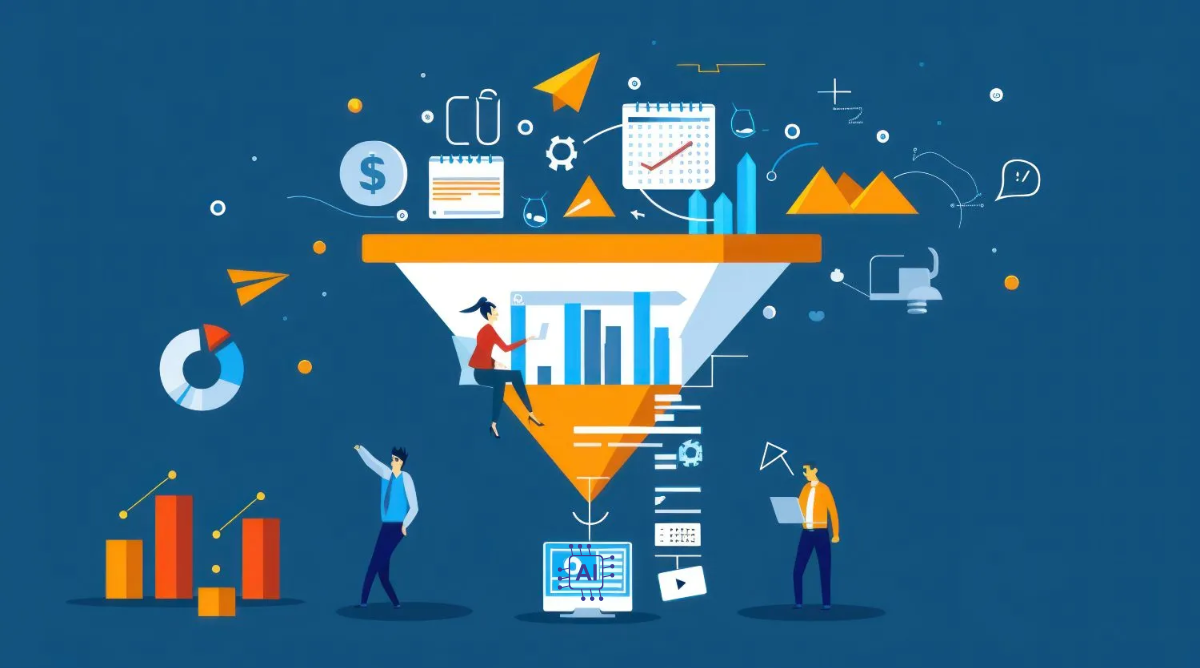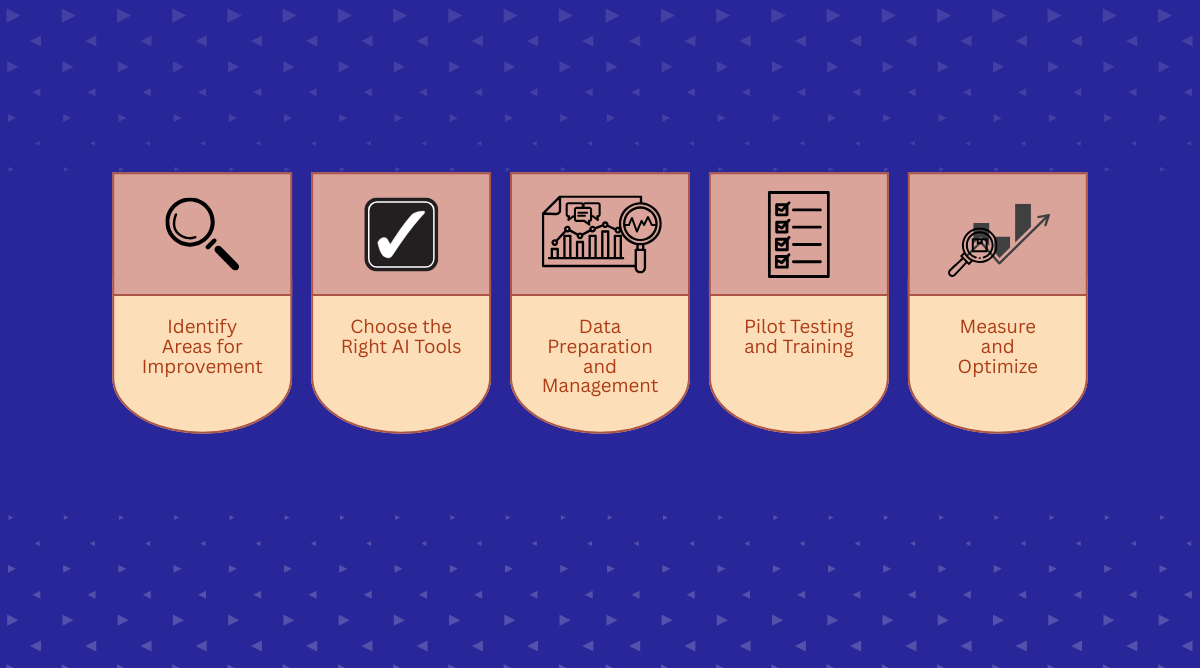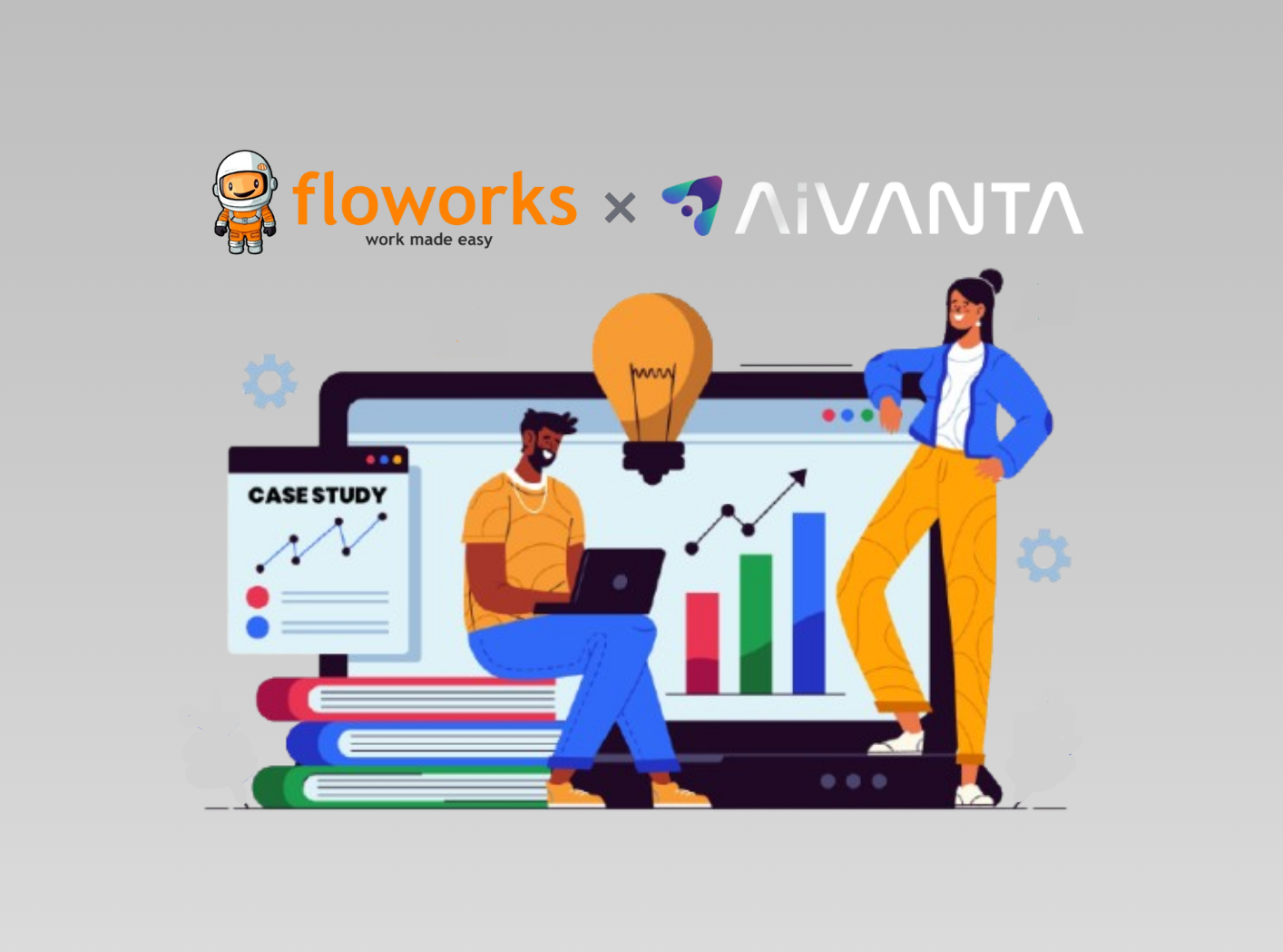Harness the Power of AI for Unmatched Sales Automation Efficiency

In the ever-evolving landscape of business, sales teams are constantly searching for ways to streamline processes, enhance customer interactions, and ultimately drive revenue growth.
Enter AI-powered sales automation—a game-changer in the world of sales. By leveraging artificial intelligence, businesses can now automate routine tasks, derive insightful data analytics, and personalize customer experiences, all of which contribute to unmatched sales efficiency. But what exactly does AI in sales automation entail, and why is it capturing the attention of businesses worldwide? Let's delve into the transformative power of AI and discover how it can revolutionize your sales operations.
Understanding Sales Automation Basics
At its core, sales automation involves using technology to perform, streamline, and augment various sales tasks, allowing sales professionals to focus on what they do best—building relationships and closing deals. These tasks typically include:
- Lead Management: Automating the process of capturing, nurturing, and converting leads.
- Email Marketing: Sending personalized, timed email campaigns.
- Data Entry: Minimizing manual data input with automated tools.
- Follow-up Reminders: Setting up alerts to engage with prospects at the right time.
With sales automation, teams can achieve higher efficiency, minimize human error, and ensure consistent communication. But when AI is thrown into the mix, the possibilities expand exponentially.
The Role of AI in Transforming Sales Processes
Artificial intelligence takes traditional sales automation to the next level by introducing advanced algorithms and machine learning models that can learn and improve over time. Here's how AI enhances sales processes:
- Predictive Analytics: AI can analyze past sales data to forecast future sales trends, helping teams align their strategies accordingly.
- Natural Language Processing (NLP): By understanding and processing human language, AI-powered chatbots enhance customer interactions, providing instant responses and solutions.
- Sales Forecasting: AI models predict sales outcomes by analyzing historical data and market trends, allowing for more accurate and data-driven decision-making.
- Customer Insights: AI can sort through massive data sets to discover patterns, enabling sales reps to tailor their approach based on customer behavior and preferences.
These capabilities fundamentally reshape how sales teams function, shifting the focus toward strategic and meaningful engagements with customers.
Why AI-Powered Sales Automation is Changing the Game
The integration of AI into sales processes is a transformative shift that offers several competitive advantages, making it a game-changer in modern business operations:
- Time Efficiency: AI can perform repetitive tasks much faster than humans, freeing up valuable time for sales professionals to focus on core activities that require a human touch.
- Cost Reduction: Automation reduces the need for extensive manpower and resources, resulting in significant cost savings for businesses.
- Enhanced Customer Experience: AI allows for hyper-personalized customer engagements, making interactions more meaningful and strengthening customer relationships.
- Scalability: AI systems can be scaled effortlessly to match business growth, ensuring that the sales processes remain efficient as demand increases.
By embracing AI-driven automation, businesses are not only enhancing their operational efficiency but also gaining a competitive edge in their industry.
Key Benefits of AI Sales Automation
Harnessing the power of AI in sales automation presents numerous benefits that can dramatically transform sales performance and outcomes. Here’s a closer look at the primary advantages it offers:
Enhanced Sales Efficiency and Productivity
AI-driven automation tools eliminate the drudgery of daily routines, allowing sales representatives to invest more time in strategic planning and customer engagement. By automating data entry, lead scoring, and follow-up reminders, AI helps in reducing workload and accelerating sales cycles. Sales teams can prioritize high-value activities, resulting in improved productivity and more closed deals.
Personalized Customer Engagement with AI
With AI, personalization reaches new heights. By analyzing data from various touchpoints, AI can identify customer preferences and deliver tailored content, offers, and recommendations. This level of personalization not only meets customer expectations but also enhances satisfaction and loyalty. Moreover, AI-powered chatbots provide 24/7 customer support, ensuring queries are answered promptly and efficiently, strengthening customer relations.
Driving Sales Growth with Intelligent Insights
AI provides deep analytical insights by sifting through vast amounts of data to uncover trends, patterns, and opportunities that may not be immediately visible to human eyes. These insights enable sales teams to make data-driven decisions, refine sales strategies, and identify lucrative opportunities. Enhanced visibility into sales pipelines also ensures that potential issues can be addressed proactively, boosting overall sales performance.
How to find Top AI-Powered Sales Automation Tools
Selecting the right tools is crucial for effectively implementing AI-driven automation in your sales processes. Here’s a guide to help you navigate the options:
Evaluating the Most Effective AI Sales Automation Tool
When evaluating AI sales automation tools, consider the following core features:
- Data Integration Capabilities: Ensure the tool can seamlessly integrate with your existing CRM and other platforms.
- Scalability: Choose a solution that can grow alongside your business needs.
- User-Friendly Interface: Opt for tools that are intuitive and easy for your team to adopt without extensive training.
- Customizability: The tool should offer customizable options to address the unique needs of your business.
Features to Look for in Sales Automation Software
Selecting the right software is pivotal. Key features to look for include:
- Predictive Analytics: Ability to forecast sales trends and customer behavior.
- Robust Reporting: Detailed analytics and reporting functions for performance tracking.
- Personalization Capabilities: Tools that support personalized email campaigns and customer interactions.
- Automated Workflows: Workflow automation capabilities to streamline sales processes.
As businesses look to stay ahead in a digital-first world, AI sales automation offers a pathway to smarter, more efficient, and highly personalized sales operations. Stay tuned as we explore further into integrating AI-driven solutions to transform sales workflows seamlessly.
Implementing AI-Driven Sales Processes
Adopting AI in sales automation opens up immense potential for driving efficiency, yet it requires a strategic approach to ensure seamless integration. Successful implementation involves understanding the specific needs of your sales process and aligning AI solutions with those needs. Here’s how to get started:
Steps to Integrate AI into Your Sales Workflow
- Identify Areas for Improvement: Analyze your current sales process to pinpoint inefficiencies or areas that would benefit from automation. These might include lead qualification, customer segmentation, and follow-up communication.
- Choose the Right AI Tools: As we've previously discussed, selecting the right tools is critical. Consider your budget, team capabilities, and integration needs when choosing AI solutions that align with these identified areas.
- Data Preparation and Management: AI thrives on data, so it’s crucial to ensure data accuracy and accessibility. Implement data cleaning processes and establish robust data management practices to keep AI functions effective.
- Pilot Testing and Training: Start with a small pilot program to refine AI tool usage and understand its impact. Simultaneously, provide adequate training to your staff to foster alignment and comfort with new technologies.
- Measure and Optimize: Continuously measure the impact of AI integration by tracking key performance metrics. Analyze the results to understand what’s working and what’s not, and make adjustments as needed.

Common Challenges and Solutions in AI Sales Automation
Adopting AI in sales processes is transformative but not without its challenges. Here's how to navigate common hurdles:
- Data Privacy Concerns: With increased data usage comes privacy challenges. Solution: Implement robust data security protocols and ensure compliance with regulations like GDPR.
- Integration Complications: Merging AI tools with existing systems can be tricky. Solution: Prioritize tools known for seamless integration capabilities, and work closely with your IT team during implementation.
- Resistance to Change: Teams may be hesitant to adopt new technologies. Solution: Foster a culture of learning by highlighting the benefits of AI in simplifying tasks and enhancing performance.
Best Practices for Seamless AI Integration
- Executive Buy-In and Leadership: Ensure that top management is on board and can articulate strategic goals that AI integration will help fulfill.
- Cross-Department Collaboration: Involve IT, marketing, and sales from the outset. This encourages synergy and helps in tailoring solutions that meet the collective needs of the organization.
- Continuous Learning and Adaptation: The AI landscape evolves rapidly. Encourage continuous professional development and stay informed about the latest advancements to adapt as necessary.
- Customer-Centric Approach: Always use AI to enhance customer experiences. Every implementation should focus on adding value to the customer interaction process.
- Feedback Loops: Establish channels for feedback from teams using the AI tools. This input is vital for ongoing refinement and improvement of AI processes.
By following these steps and solutions, businesses can ensure that the transition to AI-enabled sales operations is both smooth and advantageous.
Real-World Applications of AI in Sales
Seeing AI in action can offer valuable insights into its practical benefits. Let’s take a look at how organizations successfully leverage AI to transform their sales strategies.
Case Studies: Companies Succeed with AI in Sales
- Company A - Streamlined Lead Qualification: By implementing AI-driven lead scoring systems, Company A was able to improve the accuracy of lead qualification, leading to a 30% increase in conversion rates within six months. AI helped prioritize their sales focus on high-potential leads, optimizing time management and resource allocation.
- Company B - Enhanced Customer Interaction via Chatbots: Company B integrated an AI chatbot on its website to handle initial customer inquiries 24/7. This move reduced response times by 60% and resulted in a 40% increase in customer satisfaction scores. The chatbot handled routine queries, freeing up human agents to work on more complex support issues.
- Company C - Predictive Sales Forecasting: Implementing AI for predictive analytics and sales forecasting helped Company C anticipate demand trends more accurately, with a 25% improvement in sales forecast accuracy. This improved stock management and sales planning, enabling proactive adjustments to market changes.


AI-Enhanced Sales Performance Metrics
AI offers enhanced capabilities in tracking and analyzing sales performance through intelligent insights. Here are key performance metrics that AI influences:
- Lead Conversion Rates: AI helps identify patterns and factors that increase the likelihood of conversion, thereby directly impacting conversion rates.
- Sales Cycle Length: By improving customer targeting and engagement, AI can shorten sales cycles and expedite deal closures.
- Customer Retention Rates: Personalized recommendations and efficient follow-ups powered by AI enhance customer satisfaction, boosting retention rates.
- Revenue per Sale: AI enables more tailored upselling and cross-selling opportunities, leading to increased revenue per transaction.
Role of AI in Revolutionizing Sales Strategies
AI transforms not just how individual sales processes operate but how overarching strategies are crafted:
- Dynamic Pricing Models: AI helps businesses implement real-time pricing adjustments based on demand, competition, and customer behavior.
- Optimized Marketing Campaigns: AI provides the intelligence needed to tailor marketing messages and campaigns for maximum impact and ROI.
- Sales Team Empowerment: By providing real-time data insights, AI equips sales teams with the knowledge they need to adapt strategies and approaches to individual clients and situations effectively.
Organizations that have embraced AI have witnessed improvements not only in efficiency but also in customer relationships and profitability, underscoring the transformative capacity of AI in driving sales success.
Future of AI and Sales Automation
The potential of AI in sales automation is only beginning to be realized. As technology evolves, it presents exciting new possibilities for the future.
Emerging Trends in AI Sales Technologies
- Voice and Speech Recognition: In sales, voice command technology is making strides, allowing faster access to data and streamlined communication.
- AI-Driven Content Generation: AI tools are beginning to craft personalized content, presenting new opportunities for dynamic marketing and sales strategies.
- Augmented Reality (AR) in Sales: AI-powered AR solutions are starting to enhance customer engagement by offering immersive product experiences.
Predictions for the Next Decade: AI in Sales
- Hyper-Personalization: Expect AI to push the boundaries of personalization in sales, enabling more customized customer journeys.
- Proactive Customer Service: AI will increasingly anticipate customer needs, moving businesses from a reactive to a proactive service model.
- Digital and Human Sales Synergy: The future will see a blend of digital AI-driven efficiency and human emotional intelligence, optimizing customer interactions.
Preparing Your Team for AI-Driven Sales Transformation
- Invest in Training and Development: Regular training sessions on AI tools and technologies should be part of ongoing professional development plans.
- Encourage a Data-Driven Culture: Instill a mindset that values insights gained from data, fostering a culture of decision-making based on analytics.
- Embrace a Growth Mindset: Encourage resilience and adaptability as your team navigates new AI tools and approaches.
- Foster Innovation: Respond to technology shifts with creativity, encouraging teams to explore and leverage AI’s full potential in their sales strategies.
The future of AI and sales automation is bright, with endless opportunities for innovation and growth. Embrace the change and equip your team to thrive in this evolving landscape.
Conclusion
The journey into AI-powered sales automation is more than just a strategic upgrade—it's a transformational leap for any business looking to thrive in today’s fast-paced, technology-driven market. By leveraging AI technologies, organizations can significantly enhance their operational efficiencies, personalize customer interactions, and uncover new opportunities that fuel growth. The integration of AI not only automates mundane tasks but also empowers sales teams with intelligent insights that lead to more informed decisions and more effective sales strategies.
Adopting AI in sales is not simply about keeping up with technological trends. It's about positioning your business to respond dynamically to market demands and customer expectations. As AI continues to evolve, so too will its applications in sales automation, with endless possibilities for customization and innovation. The key is to start early, choose the right tools that align with your business needs, and continuously refine your strategies as your understanding and expertise in AI grow.
As you embark on incorporating AI into your sales processes, remember: the goal is not to replace human talent but to augment human capabilities. Striving for an optimal balance between AI automation and personal human touch will provide the ultimate competitive edge. Embrace the future with AI-powered sales automation, and let it drive unparalleled growth and efficiency in your business endeavors.
FAQs on AI Sales Automation
What is AI Sales Automation?
AI Sales Automation refers to the integration of artificial intelligence technologies into sales processes to automate routine tasks, analyze vast sets of data, and enhance customer engagement. It involves using AI-powered tools to enable predictive analytics, personalize outreach, and optimize sales workflows, ultimately leading to increased efficiency and productivity in sales operations.
How Does AI Improve Sales Performance?
AI enhances sales performance by streamlining processes and providing actionable insights. By automating repetitive tasks like data entry and lead scoring, sales teams can focus on high-value activities. AI technologies, such as predictive analytics, can forecast sales trends and customer behaviors, allowing teams to tailor strategies and make data-driven decisions. Furthermore, AI can personalize customer interactions through tailored offerings, improving customer satisfaction and loyalty.
Is AI Suitable for All Types of Businesses?
While AI offers significant benefits to many types of businesses, its suitability depends on the specific needs and resources of an organization. Small to medium-sized businesses may benefit from AI tools that offer scalable solutions tailored to their size and operational demands. Large enterprises can leverage AI to manage complex sales processes and large data volumes more efficiently. It's crucial for businesses to assess their unique requirements and choose AI tools that can be customized to their operational goals.
What Challenges May Arise When Implementing AI in Sales?
Implementing AI in sales can present challenges such as system integration issues, data quality concerns, and resistance to technological change within teams. Businesses may also face challenges in customizing AI tools to align with their specific sales processes. Overcoming these challenges requires careful planning, cross-departmental collaboration, training, and choosing tools that offer flexible integration and support.
How Can Businesses Prepare for an AI-Driven Sales Transformation?
Preparing for an AI-driven sales transformation involves several key steps: conducting a thorough analysis of current sales processes, identifying areas where AI can offer value, and defining clear objectives for automation. Businesses should invest in training their sales teams to work seamlessly with AI technologies and ensure they have the necessary infrastructure to support these tools. Continuous evaluation and iteration of AI strategies will be important to adapt to evolving market conditions and technological advancements.

